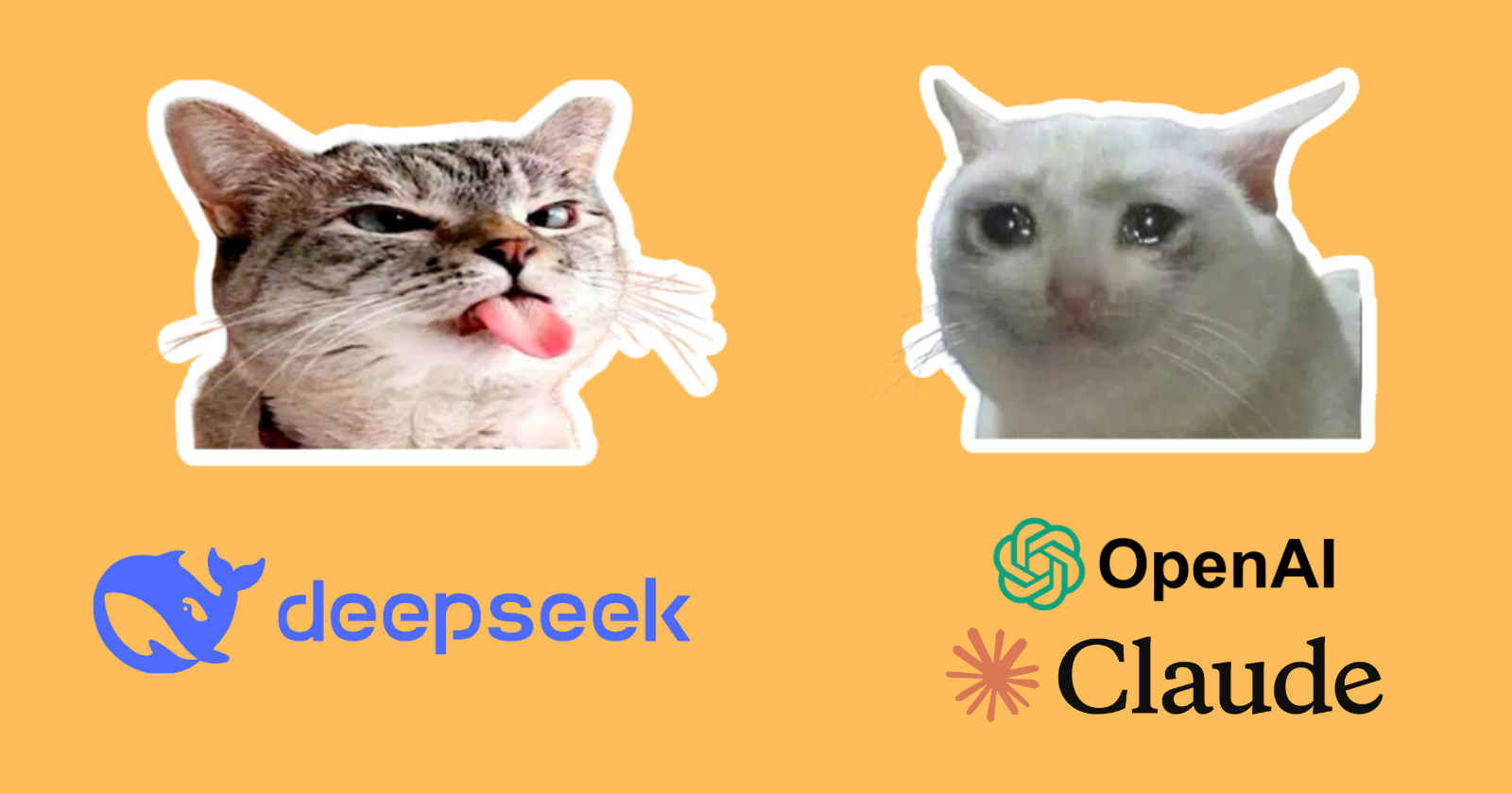DeepSeek R1 vs. OpenAI and Claude: Is It a Real Alternative?
 Sairash Gautam
Sairash GautamTable of contents

The AI landscape is dominated by proprietary giants like OpenAI (Chat GPT) and Anthropic (Claude AI), but a new contender is challenging the status quo: DeepSeek R1. This open-source model has sparked debates about whether it can truly compete with established players. Let’s dissect its strengths, limitations, and unique value proposition. But first, let’s talk about.
Why the Hype and what is DeepSeek R1?
DeepSeek R1 represents a paradigm shift toward accessible, privacy-first AI without compromising capability. In the ever-evolving landscape of artificial intelligence, DeepSeek R1 emerges as a fascinating breakthrough that has captured the imagination of the tech community. At its core, this groundbreaking open-source AI model represents a remarkable change in accessibility and challenging the traditional dominance of proprietary systems. So, what do you think makes this developement particularly compelling? Well it's simple, it is it's ability to stand shoulder-to-shoulder with industry giants like OpenAI and Claude, despite it being more streamlined, "distilled" architecture.
The significance of this achievement resonates deeply within the AI ecosystem. public a democratized tool that delivers sophisticated cognitive capabilities without the constraints of commercial gatekeeping. DeepSeek R1's emergence marks a pivotal moment where cutting-edge AI technology transcends traditional barriers, inviting broader participation and innovation in the field, while its impressive performance metrics promote genuine enthusiasm among practitioners and observers alike.
The Case for DeepSeek R1 as a Viable Alternative
Cost Efficiency: Easy Access to Advanced AI
DeepSeek R1 isn’t just affordable. It’s free under the MIT license for non-commercial use, with commercial API costs of $0.55 per million input tokens which is 97% cheaper than Claude 3.5 Sonnet and 93% cheaper than OpenAI O1. This makes it accessible to startups, researchers, and hobbyists who can’t justify the steep subscription fees of proprietary models.
Local Execution & Privacy: Your Data Stays Yours
Unlike OpenAI or Claude, which require cloud-based interactions, DeepSeek R1 can run locally on user hardware. This ensures sensitive data never leaves your machine, addressing critical privacy concerns for industries like healthcare, finance, or legal sectors. Tools like LM Studio and oLLaMA simplify deployment, offering flexibility for on-premise solutions.
Performance: Punching Above Its Weight
In head-to-head benchmarks, DeepSeek R1 delivers state-of-the-art results.
In coding, it solves problems perfectly, where others fail. It’s math skills are almost flawless, with scores showing there’s even more to come. The way it fixes mistakes, called the "Aha moment," shows it can learn and improve, almost like a human.
While the model has its limits in certain creative segments (e.g., nuanced creative writing), its performance in STEM, coding, and multilingual processing is comparable to premium models.
The Open-Source Advantage
DeepSeek R1’s transparent architecture sets it apart:
Reinforcement Learning (RL)-First Approach: Trained using pure RL without supervised fine-tuning, fostering self-correction and adaptability.
Community-Driven Innovation: Developers can inspect, modify, and redistribute the model, accelerating collaborative improvements.
Customization: Tailored variants like the 7B-parameter model optimize for specific tasks, from lightweight apps to high-performance computing.
This contrasts sharply with OpenAI and Claude’s “black box” models, where users have no insight into training data or decision-making processes.
Limitations to Consider
Let’s talk about what may be considered as limitations of DeepSeek model:
Speed Trade-Off: DeepSeek R1’s meticulous reasoning increases response times (e.g., 139s vs. O1’s 50s for coding tasks) 1.
Verbose Outputs: Its detailed chain-of-thought explanations can overwhelm users seeking concise answers 5.
Niche Task Gaps: As told before, while it excels in structured tasks, it may struggle with highly creative or ambiguous prompts compared to GPT-4 Omni 69.
Who Should Choose DeepSeek R1?
DeepSeek R1 isn’t a one-size-fits-all solution, but it's a game-changer for:
Privacy-Conscious Users: Ideal for hospitals, law firms, or anyone working with sensitive data.
Budget-Conscious Developers: Perfect for startups or independent creators who need powerful AI without the ongoing costs of subscriptions.
Transparency Advocates: Great for researchers looking for open-source, auditable models.
If speed or highly specialized creative tasks are your top priority, OpenAI or Claude might still be better options. However, DeepSeek R1 stands not as a mere alternative, but as a forerunner of a new paradigm where excellence need not command a premium, and sophistication coexists with accessibility.
Other Blogs at: https://sairashgautam.com.np/blog
Relevant Links used as reference for this blog:
Subscribe to my newsletter
Read articles from Sairash Gautam directly inside your inbox. Subscribe to the newsletter, and don't miss out.
Written by